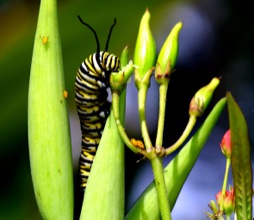What if the majority of the things we use for our day-to-day functioning can be made less harmful for our environment?
What if the only reason for not changing our behaviour is that it is so automatized, we simply don’t dedicate any thought to it?
All we need is to pause for a second.
Because in taking a closer look at our actions, we may realise many of them are fueled purely by our convenience and comfort, following the repetitive pattern of “buy-toss-buy-toss.” We’re uninterested in what happens to the waste after the product has served our purpose, and its wider implications.
Our daily habits and regular routines are the perfect places to zoom in when thinking about where and how to reduce waste production, reaching instead for more durable or sustainable alternatives.
And why should we care?
I think
basic swaps like these are too easy
not to make a little effort and give them a try.
They may be tiny steps, but if taken consistently by many of us, they will help relieve some of the incredible pressure on our planet. They will minimize plastic and trash in our daily life, save us money and the fuss of regularly purchasing certain goods, and make life simpler and us more self-sufficient—which gives us more reason to feel good about our choices.
The point is not perfection, but conscious behavioural choices that are sustainable for us in the long run.
- Fabric produce bags and totes.
I dream of a world when future generations will be shaking their heads in disbelief that in order to buy a bunch of carrots, their ancestors first put them in a plastic bag, given out in limitless numbers by every shop.
Retailers are at the heart of the
plastic epidemic and are not tackling it sufficiently, so individuals may play a role by refusing plastic bags and bringing reusable alternatives. It helps to keep the produce bags visual and in various convenient places—hanging next to the door, at work, in the car, and one or two in your purse or backpack. Grab a bunch more when going to the farmer’s market or for bigger shopping trips.
Different sizes and materials will enable you to use them for almost any kind of produce from bread, oats, veggies, and dried fruits, to spices and flour. They also make great gifts and can be easily homemade from old sheets, shirts, curtains, or pieces of fabric that can’t serve a better purpose, if you want to get creative or upcycle what you already have.
- Reusable water bottle, keep cup, and thermos flask.
They’re good for staying hydrated at all times, enabling you to have your favourite Earl Grey tea or freshly ground coffee—and for enthusiasts, even smoothies. They’re always with you, whether you are at work, stuck in public transport, or on a long walk with your dog.
You no longer need to buy bottled water, only to wonder whether it contains
plastic particles, or search for a place to get the beverage you are craving—just bring it from home. The good thing is, these can be refilled on the go at a public drinking water fountain, café, or gas station.
Materials, sizes, and styles are abundant, from stainless, glass, and bamboo, to double-walled and vacuum insulated, so you can go wild when choosing the right ones for you. Repurposing an old canning jar with a lid can also do the trick.
If humans worldwide
produce almost 20,000 plastic bottles every second, can you imagine the yearly figure of the single-use plastic bottles (and to-go, plastic-lined paper cups) we’ll avoid by carrying our own? Now let’s imagine
every person did this.
- Soap bars.
I haven’t bought any shower cream, shampoo, or liquid soap in a plastic container for over four years now, and consider it the best change I’ve ever made for multiple reasons.
I can support a small entrepreneur or family business, and even better, a local one, rather than some anonymous millionaire’s huge corporation. I’m using an all-natural product, free from
questionable substances—and often, it’s also possible to opt for local ingredients within the product, which are cheaper, more accessible, and don’t need to be dragged from the other side of the world (think rosemary instead of shea butter).
Soap bars can be bought with no packaging whatsoever (or wrapped in paper), and in bulk. The decluttering effect on the bathroom is also worth a mention, when you discover all you really need is just two to three bars, instead of eight different plastic containers.
- Travel cutlery and chopsticks roll.
This is a great little helper that addresses the
issue of disposable chopsticks and plastic cutlery when eating out. You can nest a set of each in your bag at all times. Wooden or bamboo reusable cutlery is ideal, due to its light weight. Supplement your set with a cotton napkin, or a reusable straw, if that’s your thing.
Wrap the used chopsticks and cutlery in your napkin, wash at home, and you’re all set for your next outing! If you love eating Thai and Vietnamese food like I do, this can really save a lot of resources.
- Good old handkerchiefs.
Just think of the classic damsel in distress, and a handsome gentleman hands her a soft, cotton hanky rather than a tissue. Our grandparents didn’t need Kleenex to blow their noses, so why should we?
Fabric will always feel more pleasant on your face than paper, which cannot be recycled, and unless composted, ends up in landfills or incinerated. Handkerchiefs are proven to be a
greener option and can be used forever, with an easy wash on 60°C. Stock yourself up with a few, ask Mum if she has some hidden unused ones, or search through your grandma’s closet—this might be especially rewarding if you like retro vintage stuff! This was my move, and I now proudly have a cool collection, from military to my grandparents’ wedding hankies.
- Old cloth pieces instead of kitchen paper towels.
Having previously considered paper towels an absolute necessity in the kitchen, this one was a bit tricky for me, but slowly, it’s became an enjoyable habit. I have a jar with the clean ones and another jar with the used ones. I throw them in the machine with towels to be washed on 60°C once I run out of clean ones. It’s a perfect way to repurpose those old shorts—and even socks—by chopping them up!
- Takeaway and leftovers in your own containers.
You know those days—you are too exhausted or lazy (or both) to cook, or your husband nags you to go out for those Vietnamese noodles that you simply can’t replicate at home, so you pop over to the nearest restaurant to grab some takeaway.
No single Styrofoam container or tray has to be wasted for ordering takeaway or packing leftovers when eating out, if you bring a glass jar, Tupperware box, or silicone collapsible container in your bag.
No, a single person will not save the planet themselves just by adopting these habits.
But they are little changes that easily avoid waste, and any of us can begin to do them immediately. If we incorporate them into our routines, they will make a difference—it all adds up, collectively.
Think about it, if we can lessen our environmental footprint while simplifying our already complicated lives, saving environmental and financial resources along the way, shouldn’t we be all in?
~

